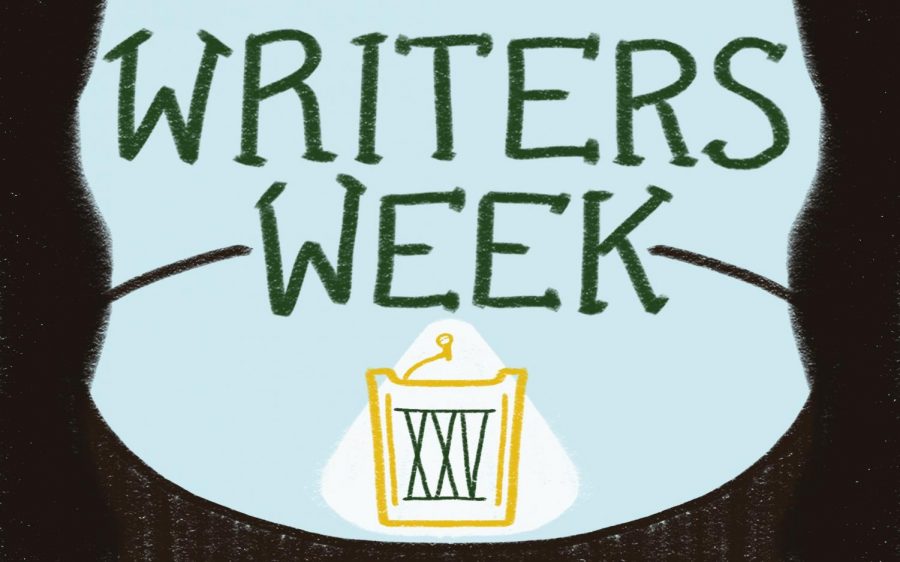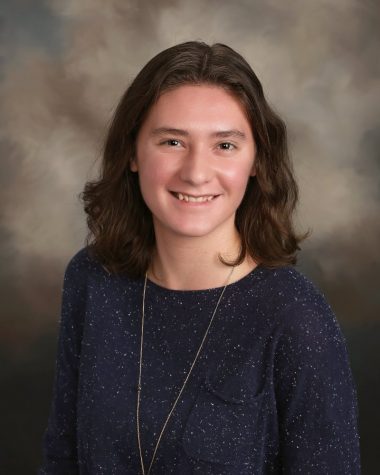What Writers Week has meant to me
February 12, 2019
In my four years of attending Writers Week, I’ve been lucky enough to perform in three of them. Each of those years, each of the stories I chose to share, shed light on a different aspect of my writing, and marked where I was and what the story I was sharing meant to me at the time.
The first year I got into Writers Week (sophomore year) I submitted four poems, but only ended up reading two of them. I read the two pieces I felt were the least intense and the least likely to draw attention to me. Although I’d chosen to submit these poems, the thought of essentially carving out a piece of myself and handing it over to hundreds of people, entirely exposed and vulnerable, was extremely daunting and overwhelming. My only goal that year was to get through the performance without passing out. There was really nothing else I wanted to accomplish.
But my junior year, I decided to perform a more personal piece. It described what was going through my mind in the harrowing moments leading up to my mother’s death. And although I framed the piece as fiction (it was part of a larger story I was writing) that excerpt was immensely close to what I’d really experienced. Giving that much of myself to so many people was challenging, but I also knew how important this story was to me, and that if I was going to perform it, if I really wanted others to get something out of it, I needed to perform it well. In the end, that resolution to be truly vulnerable, that letting go, paid off. In the letters and comments from friends I got afterwards, so many told me how that story really touched them and made them appreciate those in their lives they loved.
In my performance this year, I read two poems again, this time chosen with more purpose and less anxiety. The second poem detailed significant moments in my life that have shaped me so far. I told the stories behind some of the references I made in that piece, giving the audience a window into my life and the lives of those I love. I was far less nervous than either year before, and much more confident in what I had to say.
Writers Week, to me, is all-encompassing. It isn’t just about writing. It’s about the timeless and enduring art of storytelling, through any medium. This week, I heard a wide variety of stories, from poets, to musicians, novelists, singers, and journalists, and to brave students who don’t even enjoy writing but had a story they felt was important and meaningful enough to share; to take that risk and expose their souls to friends and strangers on that stage for five minutes.
What I’ve realized these past four years is that everyone has a story to tell. And yes, that line is cheesy, but sometimes those are the ones that hold the most truth. Everyone who performed had their own story, their own perspective and message to put out there. Carried with each one was the cautious hope that someone in the audience might soak it up and take it with them beyond that moment.
So, as a senior, this Writers Week was especially nostalgic because it reminded me that there are many stories in my own life that will be coming to a close when I walk across that stage at the Sears Center in May. I won’t ever be able to travel back to this time in my life, to all the moments with those I love that have shaped me. But no matter what, I still have those stories. Those memories that I’ll carry with me and return to when I need them. Either just for myself, or to share with others.
That’s why storytelling is so vital, and why it’s endured in so many forms for thousands of years. We can never reach back into the past; retreat into those fleeting moments that are already slipping from us. The past is an era perpetually barred from us, but stories are a window to that era. They’re how we remember the moments that have shaped us, and we share them because they have the power to shape others as well. To alter perspectives and shift the narrative, even if only for one or two people in that entire auditorium. It’s still significant; it still means something.
I’ve grown over the years of performing at Writers Week and witnessing others (professionals and students) do the same––giving themselves over to the atmosphere of the event, to the wonder of the moment.That growth has taught me to value and appreciate vulnerability, and the effect a single story can have on someone’s life.
And Writers Week itself has grown as well. This is its 25th year, and in that time, the event has seen student submissions rise exponentially and hosted a wide array of presenters, including Gwendolyn Brooks on two occasions. Nate Marshall and Jamila Woods’s tribute to her this year brought that full circle, and served to further highlight how far this event has come in two and a half decades.
All this is to ultimately say, if you’re not a senior this year, I hope Writers Week––and maybe even this article––has convinced you to create and submit something meaningful next year, because the story you have to tell is more significant than you realize.





Gary Anderson • Feb 14, 2019 at 1:35 pm
This idea is beyond important: “The past is an era perpetually barred from us, but stories are a window to that era. They’re how we remember the moments that have shaped us, and we share them because they have the power to shape others as well.” Well said, Grace.